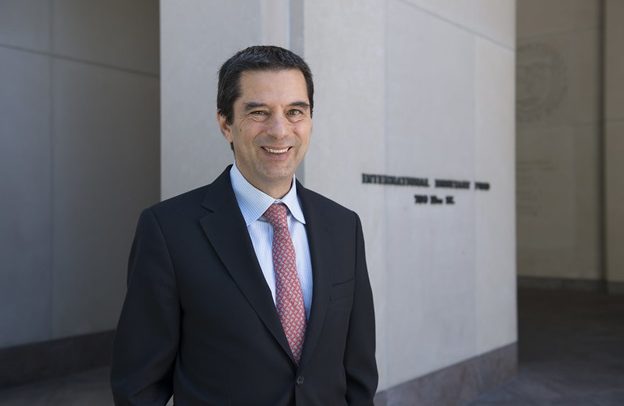Vitor Gaspar
The International Monetary Fund (IMF) has projected a marginal reduction in Ghana’s fiscal deficit of 7.3 per cent to the country’s Gross Domestic Product (GDP) in 2023.
This is lower than the 9.9 per cent recorded in 2022 despite a significant cut in government expenditure and expected improvement in revenue.
According to its April 2023 Fiscal Monitor Report, of the financial institution, the fiscal deficit will however increase to 8.4 per cent of GDP in 2024.
This indicates that the country’s fiscal economy will still experience financing challenges.
The fiscal deficit to GDP will then lower to 7.3 per cent in 2025. It will subsequently go down to 5.9 per cent, 5.3 per cent and 5.4 per cent of GDP in 2026, 2027 and 2028 respectively.
Based on the figures, the country’s fiscal deficit to GDP would remain the highest in Sub-Sahara Africa. Zambia follows closely with a fiscal deficit of 9.1 per cent of GDP in 2022.
Primary Balance
The primary balance will however end this year with a surplus of 0.1 per cent to GDP, from a deficit of 2.8 per cent in 2022.
This is a result of an anticipated strong revenue growth in 2023.
It will then inched up to 0.6 per cent in 2024 and subsequently expand to 1.0 per cent of GDP consistently from 2025 to 2028.
Meanwhile, the Director of Fiscal Affairs at the IMF, Vitor Gaspar, has advised the government to ensure that fiscal policy is consistent with monetary policy to restore price and financial stability, while supporting the most vulnerable.
“Abrupt changes in financial conditions also call for fiscal restraint to tackle fiscal vulnerabilities. To that end, governments will need to give greater priority to rebuilding fiscal buffers by developing credible risk-based fiscal frameworks that promote”, Mr. Gasper said.
By Jamila Akweley Okertchiri


